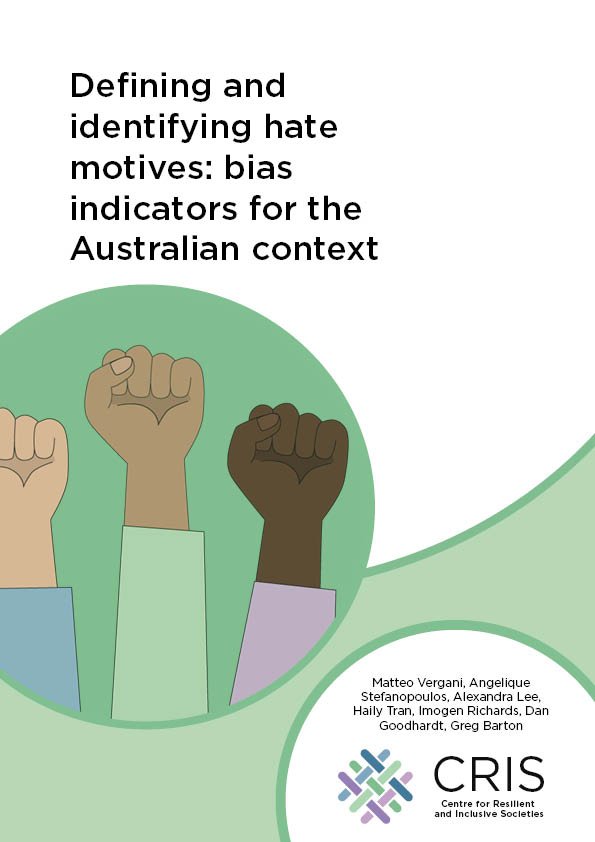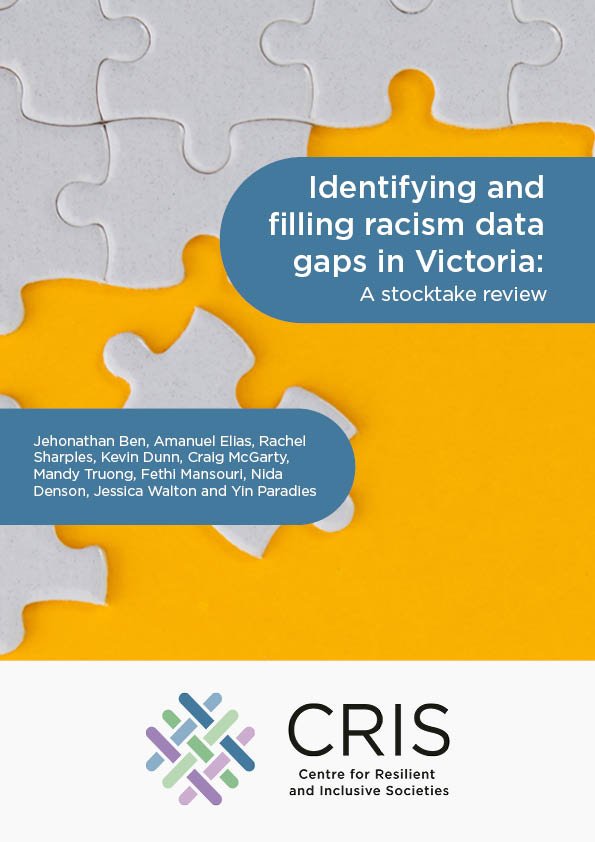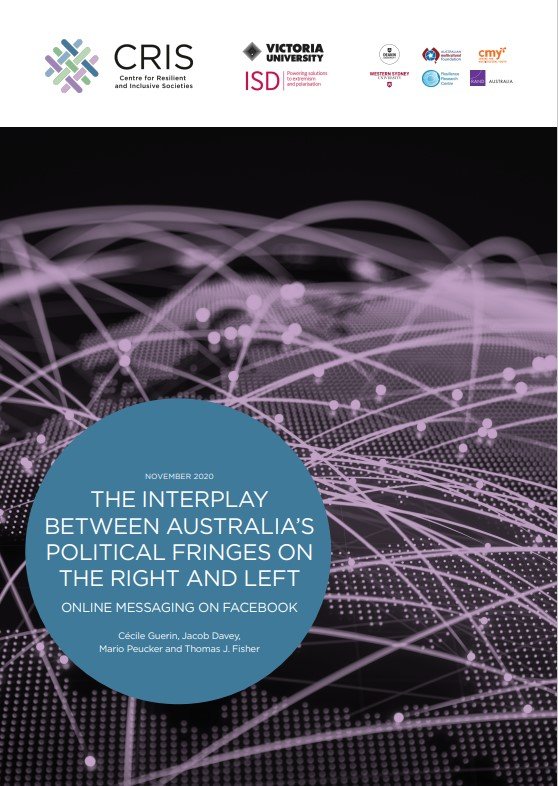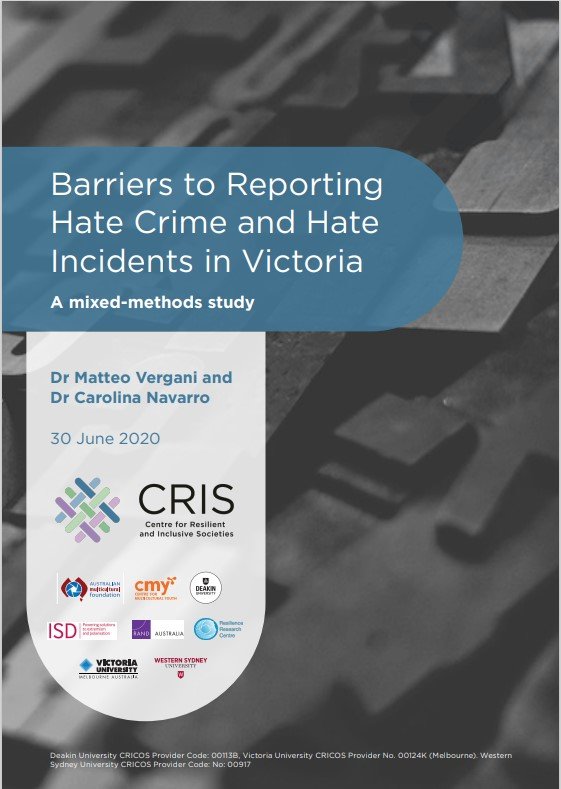
Do Governments Trust Communities? The Trust Flows Project Research Report
Around the world, governments in liberal democracies are increasingly worried by the decline of public trust. The question that is often asked is why individuals and communities have declining trust in government institutions. However, the reverse question – whether governments trust communities, and if not, why not – is far less frequently explored. A relationship of trust involves one party trusting another, and that trust being returned. One key quality of trust is therefore reciprocity. For a successful trust relationship to be created and maintained it must be reciprocal. Trust must flow both ways – not just from communities to government but from government to communities.
This Report examines trust relationships between government and communities that play a role in developing resilience to social harms. The particular focus is on the areas of disaster recovery, emergency response and dealing with violent extremism, and the ways in which government officials implement related programs and policies. The aim of the project is to support government officials and community leaders and members in creating and sustaining the trusting relationships that are needed to deliver these types of resilience building programs.

DIGITAL FOR ALL: Understanding and Enhancing the Digital Lives of Refugee and Migrant Background Youth
When given access to resources and support young people can rely on technology for work, education, socialising and health. For instance, technology enables online job interviews, virtual classrooms, connectivity to online support groups, and telehealth appointments. However, young people from refugee and migrant backgrounds have faced digital inclusion challenges, highlighted during the COVID-19 pandemic lockdowns.
This research investigated and identified the factors that can enhance digital participation amongst refugee and migrant background youth in Victoria, Australia. We have a diverse team of researchers and community partners collaborating with young people from refugee and migrant backgrounds, and together will propose strategies to enhance participation in the digital world.

Enhancing Digital Participation Amongst Refugee and Migrant Background Youth Project: Key Findings and Recommendations for Policy and Practice
When given access to resources and support young people can rely on technology for work, education, socialising and health. For instance, technology enables online job interviews, virtual classrooms, connectivity to online support groups, and telehealth appointments. However, young people from refugee and migrant backgrounds have faced digital inclusion challenges, highlighted during the COVID-19 pandemic lockdowns.
This research investigated and identified the factors that can enhance digital participation amongst refugee and migrant background youth in Victoria, Australia. We have a diverse team of researchers and community partners collaborating with young people from refugee and migrant backgrounds, and together will propose strategies to enhance participation in the digital world.

Online and Offline Racism in Victoria
An analysis of Twitter content from Victoria in 2020 found low levels of racial vilification if Asians. This surprising low level of public online racism is consistent with reanalysis of survey data. Racism directed against Asian Australians and others is an ongoing source of harm. There is not, however, good reasons to believe that hatred of Asians was successfully mobilized and exacerbated in Victoria in 2020 by mass online means. Racism needs to be confronted wherever it occurs, but the uncritical acceptance of media narratives is unlikely to help the cause of confronting it.

Can Do Better: mapping ordinary anti-racism and pro-sociality in Victoria
The research addresses the relatively neglected subject of anti-racism in Australia. The research maps the frequencies and forms of everyday anti-racism and prosocial attitudes and interaction in Victoria; identifies the factors and social variations that underlie everyday action; and explores transversal enabler practices quantitatively, including their prevalence.
Kevin Dunn, Jehonathan Ben, Rachel Sharples, Nida Denson, Amanuel Elias, Fethi Mansouri, Craig McGarty, Yin Paradies, Oznur Sahin

'Enhancing Digital Capacity amongst Refugee and Migrant Background Youth'
This research report summarises the key findings from the VicHealth funded project: Enhancing Digital Participation amongst Refugee and Migrant Background Youth. It makes recommendations for action that can be taken by stakeholders to enhance digital participation amongst young people of refugee and migrant background in the domains of education, employment, health and wellbeing, and civic and social connection.
Anita Harris, Kim Lam, Amanda Third, Phillipa Colin, Sherene Idriss, Soo-Lin Quek, Edmee Kenny, Louisa Wellend, David Cao, Komal Grewal, Alexandra Lee, Michelle Lim, Hiruni Walimungie

Media reporting on far-right extremism in Australia: Between strategic silence and harmful amplification
This report was produced as part of the project ‘The role of mainstream media in the mobilisation of radical political movements’ funded through the Centre for Resilient and Inclusive Societies (CRIS). This paper aims to identify key journalistic challenges and discussing practical factors that media professionals are encouraged to consider when making a decision about whether to report about far-right incidents and, if so, how.
Mario Peucker

Pathways of Resilience to Violent Extremism (VE) in Indonesian Higher Education
This research report has been conducted by an NGO called Love Frankie and funded by USAID and contains insightful new research (English and Bahasa) from Love Frankie with USAID on Indonesian youth resilience to violent extremism featuring the BRAVE measure.
Michele Grossman (lead), Greg Barton, Dr Vivian Gerrand, and Michael Ungar (a CRIS Consortium partner).

Defining and identifying hate motives: bias indicators for the Australian context
This report presents bias indicators for the Australian context and discusses their concept, uses, benefits and risks. The bias indicators we present are the result of extensive consultations with local experts including academics and practitioners working in law enforcement agencies, government and non-government organisations and community organisations. We aimed to make sure that the list would be practical and relevant to practitioners working in the fields of hate crime and hate speech.
Matteo Vergani, Angelique Stefanopoulos, Alexandra Lee, Haily Tran, Imogen Richards, Dan Goodhardt, Greg Barton

Australians’ Well-being and Resilience during COVID-19
This report presents findings of a national survey of over 1300 Australians conducted in November 2020 examining well-being and resilience within the COVID-19 pandemic context. The research project looked at the factors that promoted or hindered well-being and resilience during the pandemic, and what we can learn for future crises.
Nida Denson, Kevin Dunn, Jehonathan Ben, Alanna Kamp, Rachel Sharples, Daniel Pitman, Yin Paradies, Craig McGarty

Mainstream media use in far-right online ecosystems
Our research looked at the ways that far-right social media users use mainstream media outlets for their ideological messages. Researchers analysed over 55,000 social media posts from far-right users on Facebook and Gab, and found that all mainstream media outlets, regardless of their political leaning, can be co-opted for ideological messaging.
Mario Peucker, Thomas J. Fisher, Jacob Davey

Identifying and filling racism data gaps in Victoria: A stocktake review
We report on a stocktake review of racism data collected nationally in Australia and with a specific focus on Victoria. We provide a comprehensive overview, summary and synthesis of quantitative data on racism, identify gaps in racism data collection, analysis and uses, and make recommendations on bridging those data gaps and informing anti-racism action and policy.
Jehonathan Ben, Amanuel Elias, Rachel Sharples, Kevin Dunn, Craig McGarty, Mandy Truong, Fethi Mansouri, Nida Denson, Jessica Walton and Yin Paradies

The Far-Left and Far-Right in Australia - Equivalent Threats? Key findings and Policy Implications
This briefing paper is the fourth and final output in ‘Symbiotic Radicalisation’, a project in our ‘Dynamics of Violent Extremism’ research stream. Symbiotic Radicalisation is a collaboration between researchers at the Institute for Strategic Dialogue (ISD) and the Institute for Sustainable Industries & Liveable Cities at Victoria University (VU). This paper provides an overview of key trends identified throughout this research program, which examines the online interplay between the far-left and far-right in Australia (with a focus on the State of Victoria) and considers the policy implications of this work.

Mapping young people’s social justice concerns: An exploration of voice and action
This report is the first phase of a two-phase action research project titled Building Activist Capacities of Young People Through Issue-based Campaigns.
The report explores key social issues facing young people aged 16 to 25 in Victoria, Australia, and examines how they respond to these issues. This study aims to better understand young people’s experiences of voice, the contexts and conditions in which they can cultivate their voices for social change, and where their voices resonate.
Read the summary and key findings here.
Alison Baker, Lutfiye Ali
This report has been designed using images from Freepik.com.

Reciprocal Dynamics Between Australia’s Political Fringes on Twitter
This paper is the third in a series analysing the interplay between far-right and far-left groups in the state of Victoria, Australia, across a range of social media platforms. It provides an analysis of over 400,000 tweets produced by a sample of 151 far-left and 75 far-right Australian Twitter accounts since 2016.
This paper was updated in March 2022.
Cécile Simmons, Joshua Farrell-Molloy, Jacob Davey, Mario Peucker

Asian Australians’ Experiences of Racism During the Covid-19 Pandemic
This report examines Asian Australians’ experiences of racism during the COVID-19 pandemic. Comprising over 2,000 participants, this is the largest empirical study to date of Asian Australian experiences of racism in the COVID-19 context.
This report was updated in March 2022.
Alanna Kamp, Nida Denson, Rosalie Atie, Kevin Dunn, Rachel Sharples, Matteo Vergani, Jessica Walton, Susan Sisko

A Snapshot of Far-Right Activity on Gab in Australia
This paper is the second in a series analysing the interplay between far-right and far-left groups in the state of Victoria, Australia, across a range of social media platforms. It provides an analysis of over 45,000 posts by a network of 40 active Gab accounts between January and September 2020.
Cécile Guerin, Jacob Davey, Dr Mario Peucker and Thomas J. Fisher

The Interplay Between Australia’s Political Fringes on the Right and Left - Online Messaging on Facebook
This paper is the first in a series analysing the interplay between far-right and far-left groups in the state of Victoria, Australia, across a range of social media platforms.
Cécile Guerin, Jacob Davey, Mario Peucker and Thomas J. Fisher

Barriers to Reporting Hate Crime and Hate Incidents in Victoria: A Mixed-Method Study
This report provides important evidence for all stakeholders involved in tackling hate in Victoria, including policy makers, law enforcement agencies and community organisations, to better understand how to address community reporting barriers.
Dr Matteo Vergani & Dr Carolina Navarro



















